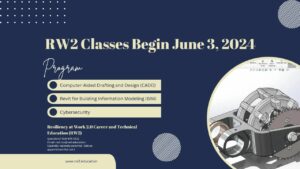
In today’s competitive job market, technical knowledge alone isn’t enough to secure your dream job. Employers are increasingly prioritizing skills and soft skills that demonstrate your ability to collaborate, adapt, and communicate effectively.
Whether you’re a recent graduate stepping into the workforce or a student preparing for future opportunities, mastering how to showcase your soft skills can make all the difference.
This guide will provide actionable strategies to identify, highlight, and communicate your soft skills effectively through resumes, cover letters, and interviews, using your academic and extracurricular experiences as a foundation.
Understanding Soft Skills
Soft skills are personal attributes and behaviors that enable you to interact effectively and harmoniously with others. Unlike technical or “hard” skills, which are specific and measurable, soft skills are more about how you work and relate to people.
Examples of soft skills include:
- Communication
- Teamwork
- Leadership
- Problem-solving
- Adaptability
- Empathy
At RW2 Career and Technical Education, we emphasize the importance of integrating soft skills into our programs.
Our approach ensures that students are not only proficient in technical areas like Computer-Aided Drafting and Design (CADD), Revit for Building Information Modeling (BIM), and Cybersecurity but are also equipped with the interpersonal skills needed to succeed in the workplace.
Identifying Your Soft Skills
The first step to showcasing your soft skills is to identify them. Reflect on your academic journey, part-time jobs, internships, volunteer work, and extracurricular activities. Ask yourself:

Once you’ve identified your strongest skills and soft skills, consider how they align with the requirements of your desired job.
For example, if you’re applying for a tech role, employers might value teamwork, problem-solving, and adaptability alongside technical proficiency.
Showcasing Soft Skills in Your Resume
Your resume is often your first opportunity to demonstrate soft skills to potential employers. Here are some tips:
- Use Action Verbs: Start bullet points with action verbs that highlight soft skills, such as “collaborated,” “led,” “resolved,” or “communicated.”
- Quantify Your Achievements: Wherever possible, include measurable results to back up your claims. For instance:
- “Led a team of 5 to complete a class project two weeks ahead of schedule, improving efficiency by 20%.”
- “Resolved customer complaints with a 95% satisfaction rate during a part-time job.”
- Tailor Your Resume: Align your soft skills with the job description. If teamwork and communication are emphasized, highlight experiences where you excelled in these areas.
Highlighting Soft Skills in Your Cover Letter
Your cover letter offers a chance to tell a story that demonstrates your soft skills. Use specific examples from your experiences to illustrate key attributes:
- Communication: “During an online drafting and design class, I presented a detailed 3D model project to my peers and instructor via video conferencing, receiving positive feedback for my clear explanation and professional visuals.”
- Problem-Solving: “During a group project, I identified a scheduling conflict and proposed a revised timeline that helped us meet our deadline without compromising quality.”
- Leadership: “During an online cybersecurity class, I took the lead on a group project to design a simulated network security protocol. I delegated tasks among team members, facilitated virtual meetings, and ensured all voices were heard, resulting in a solution that received top marks from the instructor.”
Demonstrating Soft Skills in Interviews
The interview is where you bring your soft skills to life. Here are some interview tips to help you shine:
- Prepare Examples: Use the STAR method (Situation, Task, Action, Result) to structure your responses. For example:
“During an online Revit for Building Information Modeling (BIM) class (Situation), I was tasked with improving the efficiency of a collaborative model-sharing process (Task). I organized virtual team meetings to establish best practices for file management and developed a shared folder structure (Action), which reduced file access issues by 40% and improved team productivity (Result).”
- Showcase Your Communication Skills: Practice clear, concise, and confident answers. Good body language, such as maintaining eye contact and nodding, reinforces your communication abilities.
- Highlight Adaptability: Share instances where you successfully navigated change, such as shifting project priorities or learning a new tool under tight deadlines.
- Ask Thoughtful Questions: Demonstrating curiosity and engagement reflects strong interpersonal skills.
Framing Academic and Extracurricular Experiences
Students often have a wealth of experiences that can illustrate soft skills. Here’s how to frame them:
- Team Projects: Describe your role and how your contributions led to the project’s success.
- Leadership Roles: Highlight leadership positions in clubs or organizations, emphasizing achievements like growing membership or organizing successful events.
- Volunteer Work: Discuss how volunteering develop your empathy, communication, and organizational skills.
- Part-Time Jobs: Even roles unrelated to your desired career can demonstrate adaptability, teamwork, and problem-solving.
RW2’s Approach to Teaching Soft Skills
At RW2 Career and Technical Education, we understand that a well-rounded education combines technical expertise with soft skills. Through programs in CADD, Revit for BIM, and Cybersecurity, we ensure our students are ready for the real world. Our engaging lessons incorporate:
- Problem-Based Learning: Students tackle real-world scenarios to develop critical thinking and problem-solving skills.
- Group Projects: Collaboration is a cornerstone, helping students refine teamwork and communication abilities.
Real-Life Examples: We connect technical training to practical applications, reinforcing adaptability and creativity.

Why Employers Value Soft Skills
Employers consistently rank soft skills among the top attributes they seek in candidates. Here’s why:
- Communication Skills: Strong communicators can convey ideas effectively, fostering collaboration and minimizing misunderstandings.
- Teamwork: The ability to work well with others is crucial in almost every industry.
- Adaptability: In a fast-changing world, flexibility is essential for tackling new challenges and technologies.
- Leadership: Even entry-level roles benefit from leadership qualities like initiative and accountability.
- Empathy: Understanding and respecting diverse perspectives enhance workplace harmony and customer relations.
Conclusion
Are you ready to develop the skills and soft skills that employers value most? At RW2 Career and Technical Education, we equip students with both technical expertise and the interpersonal skills needed to thrive in today’s job market.
Whether you’re interested in Computer-Aided Drafting and Design (CADD), Revit for Building Information Modeling (BIM), or Cybersecurity, our next class starts on February 10, 2025.
For more information, call us at 816-875-0111 or email rw2.cte@rw2.education. Let RW2 help you bridge the gap from classroom to career, ensuring you’re ready to make an impact in any industry!



